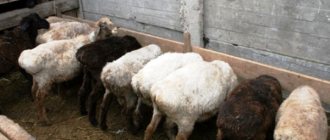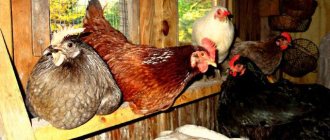Some first-time owners often worry about the fact that ferrets spend most of the day sleeping. However, such drowsiness is typical for these rodents and is not a sign of illness.
Let's find out how much ferrets sleep at different times of the year, and whether they hibernate.
Types of sleep
The sleep of sleeping trochees has 2 phases:
- slow. Accompanied by a decrease in heart rate and breathing. During this period, hormones are released that are necessary for the restoration of muscle cells and the normal course of the formation of leukocytes.
- fast. This dream is also called paradoxical; it corresponds to the complete relaxation of the animal. During this phase of sleep, a healthy sleeping ferret does not react to loud noises or touches. If the sleeping animal is not disturbed at this time, after awakening, the so-called “peak learning” is observed, when new things are imprinted in the brain by more active growth of neural connections. Therefore, it is better to train the animal after it wakes up on its own and combs itself.
How long does a ferret sleep per day?
A ferret's sleep depends on various factors. Neutered males and neutered females sleep the most. Their sleep is 18-20 hours a day. Castration and sterilization are among the causes of lethargy in animals, but are not the main ones. The main reason for the long sleep of animals is the structural feature of their body.
The wakefulness of ferrets is active. They are overly active, constantly running around the apartment. The animals play without stopping for a minute. This speeds up the metabolic processes in their body. During sleep, ferrets replenish the energy they have wasted in a short period of time. It takes them a long time to recuperate.
Factors that affect sleep
Ferrets sleep the least during the mating season. Among the main physiological factors influencing sleep duration:
- Age of animals. Young ferrets are more active than older ferrets. They spend significantly more energy than their older counterparts. Sleep kills young animals like a machine gun fire. When young ferrets wake up, they tremble. This is how their irrepressible desire to move is expressed. When they wake up, they immediately begin to chew something and run around the house like crazy. Older ferrets sleep 15-18 hours. They lead a more relaxed lifestyle, they love warmth, silence, comfort and soft places where they can sleep well.
- Season and weather. Ferrets sleep the longest in winter. During this period they may have full hibernation. This is due to the short daylight hours. The darkness makes them feel drowsy. During this period, animals eat more and play less. The period of wakefulness in winter is no more than 4 hours a day. Additional lethargy in ferrets occurs as a result of molting. Animals can sleep for several days in a row without waking up even to eat. With the arrival of spring and summer, the lifestyle of animals changes. They become more active and play a lot.
- Mating season. At this time, ferrets completely lose their usual sleep and wake times. Their unusual physical activity at night can cause insomnia for everyone in the house. Ferrets will gladly replenish the strength lost at this time during the day, sleeping from dawn to dusk. They return to their normal routine immediately after the end of the mating season. Pets' sleep sometimes resembles a “ragged” sleep pattern. It consists of alternating short periods of time for rest and play.
The duration of sleep of animals is influenced by their gender. During the rutting period, males sleep much less than females. A lack of vitamins can cause drowsiness. They should be given to animals all year round. Sometimes the cause of drowsiness is a disease that weakens the animal's body.
Sleep phases
In cute predators kept at home, there are 2 stages of sleep:
- slow;
- fast or paradoxical.
They have different mechanisms for the rest process. During the slow stage of sleep, animals' heart rate slows down. They inhale and exhale less often. Their sleeping body secretes hormones responsible for the formation of leukocytes and the restoration of muscle tissue.
The fast stage is characterized by complete relaxation of the animals. Their consciousness turns off and reflexive reactions to events happening around them do not work. The best time to train predators is when they wake up from REM sleep. At this time, animals experience a peak in receptivity to learning. Memory stores almost all new skills acquired.
Ferret under the blanket
During their waking hours, animals receive, thanks to their increased activity, a huge amount of information. This forces them to direct all the nervous energy from external stimuli inside themselves. The result of the process is the disabling of certain functions in predators.
Why do ferrets sleep a lot?
The main reasons for long sleep in predators are metabolism and hyperactivity. The energy spent during the waking period cannot be replenished with food alone. Its main supply is restored during rest. After 2 hours of excessive activity, the animal sleeps for at least 4 hours. The most active ferrets are the largest dormouse.
How long does a ferret sleep?
These cute little animals love to relax. When thinking about how many hours a ferret sleeps, you should remember that in this they are superior even to cats. This process takes them about 18 HOURS a day. The remaining 6 hours they prefer to play and have fun. Most often, the peak of their activity occurs in the evening, just when all family members return home.
All owners of pet ferrets note that sleep can kill these furry little brats even on the go. A sleeping ferret can be spotted in a gap between a sofa and a wall, under a table, or on the floor of a room. This interesting fact makes the animals even more cute and attractive.
Before reaching the intended goal, the animal may fall asleep with its eyes half-open and its tongue hanging out.
How much he sleeps depends on the time of year, so there is no need to worry that he is unwell. It is better to conduct an examination if you have significant doubts. In any case, they will have to be completed shortly before vaccination. Since vaccination is done to a completely healthy animal and nothing else.
What should a ferret cage look like?
Although an animal can live freely in an apartment or house, a cage is still a necessity. Especially when you consider how much ferrets sleep. In addition, leaving a ferret alone in the wild is unsafe. Without a cage, constant chaos in the room cannot be avoided. Even the safest room contains sockets, electrical appliances, sharp corners and other things dangerous to the animal. Therefore, the ferret must have its own cage.
The ideal choice would be a large, tall and spacious house that will accommodate a tray, food and drink bowls, and bedding for sleeping. In addition to the necessary items, you can hang a hammock in the cage. Animals simply love to ride on it.
Why does a ferret sleep a lot?
These animals have a very fast metabolism and a hyperactive lifestyle. If the ferret is not sleeping, he will certainly move: exploring the territory, running, playing with his owner or relatives, conquering obstacles, etc. All this requires a lot of energy, which the ferret draws in his sleep. Thus, for every 2 hours your pet is awake, there are 4 hours of sleep.
The more active a ferret is, the more soundly he sleeps!
How long does a ferret sleep?
Ferrets are mammals from the mustelidae family.
There is a wild and domestic form of this predatory animal. These animals are very active and playful. Their character is peaceful, they quickly get used to their owners. Ferrets love to nibble, chew, and play with various rubber objects. If you decide to get a ferret, then you need to be prepared for the fact that you will have to play with it for a long time, up to several hours, otherwise they will begin to feel sad and even refuse to eat. They are distinguished not only by their excessive activity and friendliness, but they also love to sleep. The duration of their sleep can reach more than half a day.
What happens during sleep
- Nervous system. The huge number of impressions that an animal receives during its endless movement during the active period leaves an imprint on its brain. The information received is stored in the central nervous system through the formation of new connections between brain neurons. Building these connections requires energy, the costs of which are replenished by the active work of special cellular structures during sleep, so other brain functions are almost completely turned off. The result is a ferret that sleeps so soundly that when you pick it up, it looks like a rag hanging from your palms.
- Energy storage at the cellular level. The activity of a ferret requires a huge expenditure of energy from working muscles, sensory organ structures, and so on. During sleep, the active work of cell organelles begins in your pet's cells to store special substances, the exchange of which at the cellular level will provide energy to your pet's cells.
- The intellectual component of sleep. When your ferret rests, brain activity decreases, but not completely. When ferrets sleep, the impressions received are evaluated, as a result of which the brain selects what is important for the ferret and discards what is unnecessary from his point of view. How this happens, what acts as a criterion – scientists today cannot yet find an answer to these questions. But by the time the ferret wakes up, some of the connections between neurons formed during the period of activity will be destroyed.
- Immunity and sleep. During the experiments, an interesting pattern was discovered. If animals were prevented from sleeping, the number of leukocytes in the blood decreased and immunity weakened. What causes this and how it happens has not yet been clarified, but the fact remains a fact. If you want your pet to be healthy, do not prevent him from getting enough sleep.
A caring owner always pays attention to how much the ferret sleeps. Violation of sleep duration and hyperactivity can signal a dangerous disease - hyperadrenocorticism.
Features of ferret care
When thinking about why ferrets sleep soundly, we must not forget that their activity during wakefulness exceeds that of many other animals. That is why their body compensates for the wasted energy by sleeping soundly.
Having chosen this animal as a pet, many are surprised that caring for these animals is not so difficult. You just need to follow the following recommendations:
- Clean the litter box every day.
- Change the bedding in the cage once a week.
- Every 2 weeks, trim your ferret's nails with a special nail clipper with a stopper.
- Once every 2-3 weeks you need to clean the animals’ ears with a cotton swab. It is better to carry out the procedure while they are sleeping. Considering how much ferrets sleep, this can be done at any convenient time.
- Once a month you need to bathe your pet with a special shampoo.
This is where the specifics of caring for a ferret end. The animal is quite unpretentious and does not require huge financial investments. All he needs is tasty food, water, a litter box, and an owner who will play with him most of his waking hours.
Winter hibernation period for ferrets
If you thought that you loved to sleep, then you simply have not yet had the chance to meet a record holder and professional in this amateur sport: the norm for a ferret is a daily sleep of 18 to 20 hours. And this is only during the spring-summer solstice, when daylight hours are longer and the weather is conducive to movement and games. How much a ferret sleeps per day during cold weather is a completely different statistic.
Observing the frequency and duration with which the animal falls into sleep, we can conclude that with the change of season, the animal’s sleep pattern also changes, and the day shifts slightly. In winter it is influenced by:
- length of daylight hours: the shorter it becomes, the longer the ferret sleeps;
- change of fur - by winter, ferrets are covered with a thicker and warmer coat, which naturally hinders their usual movements, the pace is no longer the same as in summer;
- weather conditions - since ferrets are overly weather-sensitive animals, a change in atmospheric pressure, cloudy, rainy weather induces sleep and inaction, which makes the ferret sleep even longer.
In autumn and winter, ferrets sleep much longer than usual; do not be alarmed if your energetic pet has previously begun to spend long hours in a warm and soft sleeping place. The animal's sleep becomes deeper, and sometimes even with great efforts, the owner will not be able to wake him up.
Don't be scared! No, he didn’t die, but just fell into hibernation, the so-called blues, and in a couple of hours he will wake up on his own. The ferret is less active, loves to eat, and spends more time dreaming.
Factors influencing sleep duration
So how long do ferrets sleep? Typically, a ferret plays for 6 hours a day and sleeps for the remaining 18 hours. But there are several factors that change the baby’s usual schedule. Namely:
- Physiology of the individual. This means that in a castrated male and a sterilized female, the sleep period lasts a couple of hours longer. It is about 19-20 hours a day. The waking time for such individuals is more calm and balanced. They are less playful and move more slowly.
- Age of animals. It affects not only the behavior and character of animals, but also the duration of sleep. For the younger generation, active games, playfulness and a cheerful mood are natural. They usually sleep for a short time; when they wake up, they may tremble. This condition does not mean that the animal is cold. This is a characteristic sign of young blood and readiness for games. Having awakened, they quickly rush around the entire territory, and can also often gnaw on furniture. Adults behave in the opposite way. They are quiet, calm and love to take long naps.
- Season. This factor greatly influences how long ferrets sleep. When winter comes, the duration of sleep increases significantly. It gets dark much earlier than usual. During this period, animals eat a lot, sleep and are less awake. And with the arrival of spring, and then summer, this species of mammal changes its daily routine. Daylight hours are increasing, sleep is no longer as long and deep, and the desire to play is becoming stronger.
- Mating season. When it's time for the rut, ferrets' daily routine changes completely. They can run around the cage excitedly all night, chew on its bars and be unusually excited. During the day, representatives of this species can sleep quietly and peacefully. But this condition of the pet should not frighten the owner. These are their natural instincts. In the wild, ferrets behave in exactly the same way during the rut, after which their behavior becomes the same.
By the way, did you know, Look, it's interesting!
These cute furry babies love to run and jump throughout the territory where they live. If this is an apartment, then sofas, armchairs, and other furniture will all be accessories for your pet’s fun. But you need to take into account the fact that a pet who has spent hours exploring the corners of your home can fall asleep wherever he wants at any moment. This could be the floor, a corner of the room, a washing machine drum, a shoe box, a closet, an armchair or a sofa. In fact, there are a lot of such places. Therefore, it is necessary to observe your pet and be sure to know where he fell asleep. After all, quite often there are cases when, without looking into the drum, they turn on the washing machine, unfold or fold the sofa, inside which the pet is sweetly resting.
What happens in the spring
With the arrival of spring, everything falls into place:
- the owner again gets his pet, who is used to running around the house all day and playing around with funny toys;
- the animal again sleeps only a couple of hours longer than its owners;
- the ferret eats less;
- The ferret takes off her winter coat.
In spring and summer, as daylight increases, everything changes. Rodents become more active and sleep significantly less, while their sleep becomes less deep than in autumn and winter.
How sleep affects your pet's health
A very valuable observation is the deduced pattern between immunity and sleep. If an animal is disturbed from sleeping, its production of leukocytes in the blood decreases and its immunity weakens. In this regard, the owner should always remember that the health of the ferret directly depends on the quality of his sleep. You should always pay attention to how much and how ferrets sleep.
Lack of sleep hints at health problems. If your ferret is breathing (even if slowly) while sleeping, has a wet pink mouth and a warm body, this is a good deep sleep. If the animal cries or moans in its sleep, or the body is cold, you should urgently contact a veterinarian.
Averages
On average, ferrets live with humans for about 8-9 years, with a maximum of 15. For comparison: a wild one barely crosses the 5-year mark. This is due to the natural conditions in which he lives, enemies - larger predators, lack of food, parasites. Wild ferrets cannot last as many years as domestic ferrets live.
The owner must surround the ferret with care
No living creature is immune from sudden death. It is up to the owner to provide everything necessary so that his pet stays with him as long as possible. How many years ferrets live in captivity largely depends on the conditions created for them.
Get rid of all things that could endanger your ferret.
Also try to get rid of plastic and rubber surfaces in the ferret's habitat. These soft materials are especially attractive to ferrets. They simply love to taste them, and they can bite off small pieces and swallow them.
Such poisonings threaten intestinal volvulus and intestinal blockage. Do not leave the washing machine door open, the ferret can get into it, and you risk washing the ferret with your clothes, obviously, he is unlikely to survive after that. There are also rubber parts that ferrets are so partial to.
Ferret in an apartment - house plants will have to be removed to a place where the ferret cannot reach them. Ferrets love to rummage in the ground, and the root system of the plant can suffer from this; the ferret can break the pot and scatter dirt everywhere.
The ferret is in the apartment, so do not forget about the precautions. You need to be very careful in the apartment while the ferret climbs wherever he pleases. Before you sit down, stand up, close or open something, move or push something in, check if your nimble friend is there.
Features of keeping at home
Ferrets feel great both in a city apartment and in a private house. They do not require a lot of space or any special living conditions. Nevertheless, every responsible owner who is concerned about the health of his little friend must observe the following precautions:
- All cracks and small openings in the room must be closed. Therefore, before letting a ferret into the house, you need to carefully inspect all the furniture, household appliances, and ceilings. The animal shows great interest in all crevices and can easily get stuck there or get injured. In addition, the ferret constantly sleeps and can get lost behind the sofa or bed for a long time.
- They love to stock up on treats and hide toys. Therefore, you need to separate the most secluded corner in the room for them. It should be kept separate from the cage and tray. Other places that could serve as hiding places must be closed. By following this recommendation, you can save all family members from the eternal search for food hidden by the animal.
- When letting your ferret go for a walk around the apartment, you should make sure that the doors to the kitchen and bathroom are locked. Otherwise, the ferret can get in there and wreak havoc in the closets. Having entered the bathroom, he can not only swallow shampoo or shower gel, but also cause a real flood by opening all the taps.
- Flowers and other plants should be kept out of the ferret's reach. By nature, he will not be able to stop himself from digging in the ground. Therefore, it is better to protect your home vegetation.
How to arrange a place to sleep
There are excellent ferret hammocks available in stores. They are so convenient to use when keeping animals. Hammocks save space in the cage; they can be hung at a height convenient for the animal. They are easy to clean and wash.
Many ferret management manuals praise this human invention for their pets. But if ferrets could talk, they would definitely have a negative opinion about hammocks. They would ask - have you ever seen a ferret sleeping on a branch?
Of course, ferrets sleep in hammocks, but such sleep will not be complete. Due to the impossibility of creating a natural burrow in an apartment, the best place to sleep that you can offer your pet from his point of view is a house, which he will enter by crawling through the sleeve of an old jacket attached to the entrance to the house.
And don’t skimp on the various rags that the ferret happily uses to make a nest. Under no circumstances should you give foam rubber - the pieces into which the ferret will tear it can get into the trachea and lead to death; once in the stomach, the foam rubber decomposes and releases toxic substances.
When arranging a place for your pet to sleep, you should not spare time, effort, or money. Sleeping ferrets, who have a comfortable sleep, are no less touching than during the active period.
General information
The ferret is a mammal of the mustelidae genus. Vigilant and dexterous, this animal is a born hunter. As soon as it gets dark, the ferret goes hunting. The predator feeds on voles, gophers, frogs, insects, etc. It is important for him to have his own shelter, which, however, he rarely digs on his own. It settles and lives in hollows, haystacks, burrows of other animals, in buildings such as barns and cellars.
The domestic ferret (ferret) was bred from the forest at the beginning of our era in Europe. Appreciating the agility and hunting instinct of the animal, the man pursued the goal of obtaining a catcher of mice and rats. Interestingly, representatives of this species are often confused with stoats.
Reviews
Konstantin Orlov 02/18/2019 at 01:13
Yes, it is quite. Ferrets are animals that tend to sleep a large number of hours a day. For example, there are cases when a ferret can sleep for twenty-two and sometimes twenty-three hours. Naturally, this does not continue all the time, but especially in winter. If your ferret sleeps a lot, then this is normal, because it is winter, and if he is young, then this is also understandable, especially if you feed him heavily. So don't worry.
Ekaterina Golubeva 02/06/2019 at 13:06
They sleep up to 20 hours a day.
Khristina 02/06/2019 at 20:45
about 20-25 hours










